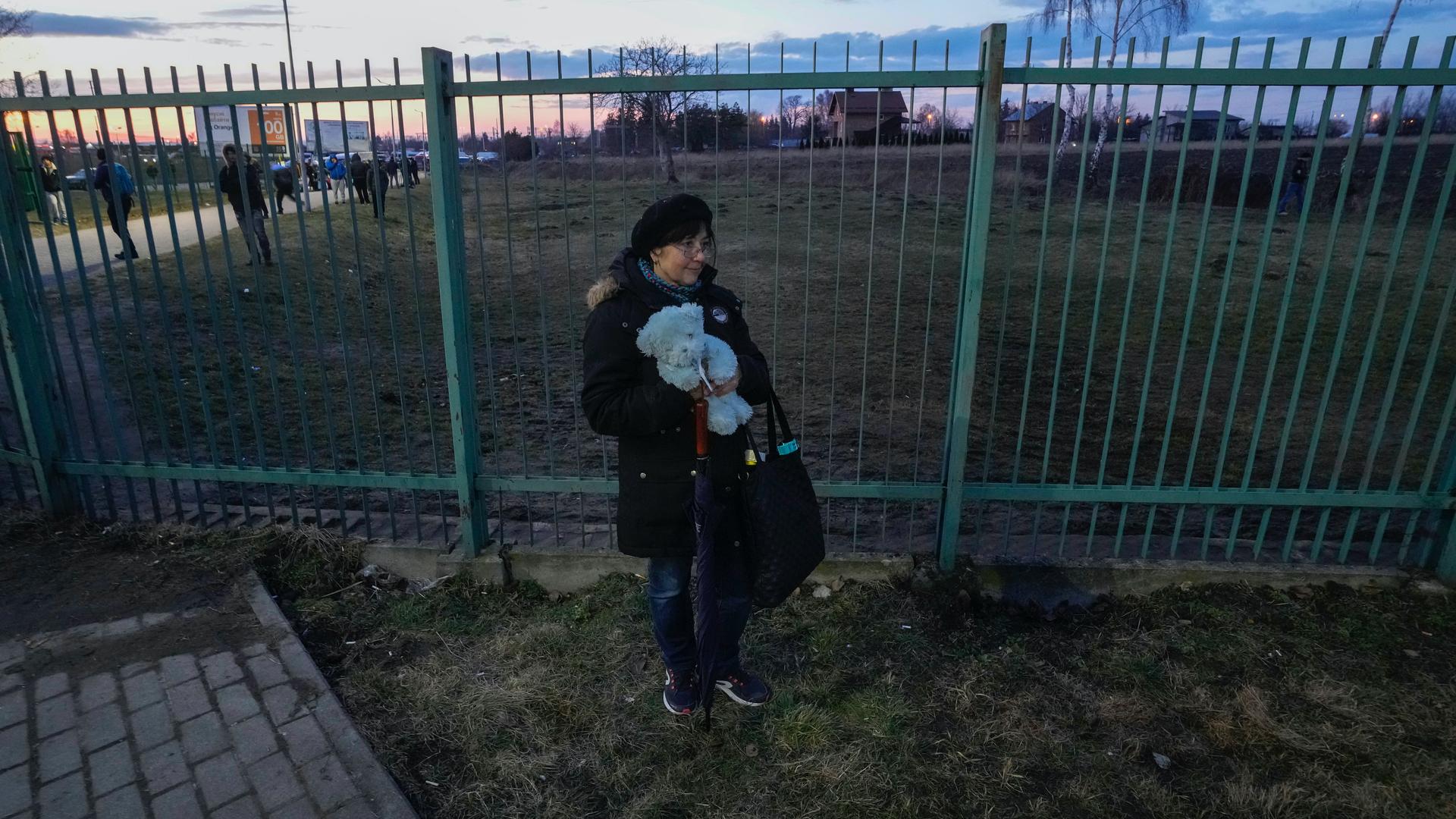The UN’s refugee agency estimates 100,000 Ukrainians have fled their homes so far, seeking safety from the Russian invasion.
Many of them are crossing into Poland. And the Polish government is setting up reception centers and hospitals to help new arrivals.
In early February, Poland said it would accept up to 1 million Ukrainian refugees.
Agnieszka Kosowicz, president and founder of the Polish Migration Forum, spoke to The World’s host Marco Werman from Warsaw.
Marco Werman: How many people are crossing the Ukrainian border into Poland right now and where exactly are they going?
Agnieszka Kosowicz: We know about dozens of thousands of people that have already crossed overnight, and we also know about the queue of about 100,000 people that are on the Ukrainian side, waiting basically to be allowed into Poland. We also talk about millions, and it’s hard to imagine how Poland will cope with this, to be frank.
So, let’s start at the main border crossings. What does that look like right now?
Long queues of people that have been stuck on the border for the last 24 hours. So, we still have people waiting that have arrived [at] the border yesterday. And many of them are women with children, because the Ukrainian border guards do not allow men out. So, this is a challenge for women, with the kids stuck there for hours.
I saw some video last night of Ukrainians who had just crossed into Poland. They were in a rest area with a café and restaurant that were opened late at night. How big of a relief is it for them just to get across the border into Poland?
Well, for any refugee, crossing a border means that they feel safe and they can take a deep breath. But then, on the other hand, the people that we talk to very often talk about the families that were left behind. So, yes, people are happy to be in a safe place, but on the other hand, they’re very concerned about the loved ones or family members that are left behind.
Tell us more about the reception centers and the hospitals. What preparations has Poland been making?
Well, I have to say that this is something that is happening right now because Poland — the traditional network of reception centers that we used to have for refugees in Poland — was designed for a capacity of 3,000-3,500 people. So, any numbers that we are talking about now are already overwhelming for the system that used to work. So, whatever happens now is just being created. I have to say that there is a huge peoples’ initiative and a lot of goodwill among the simple people, regular people offering help to Ukrainians. And even in our foundations, we receive really dozens of offers every day of people who want to contribute their own flats, their own homes or small hotels, or different kinds of facilities where people can stay.
Well, Poland’s government has taken a staunch stance against migrants. Authorities in recent months have blocked refugees from coming through the Polish border with Belarus. So, can you help us understand why Poland seems open to Ukrainian refugees, but people from other parts of the world, Afghanistan or Eritrea, that seems to be a bridge too far for some people.
If you talk to people, everybody has their own rationale and way of thinking. I believe the politics or historical reasons play an important role, because Poland and Russia are not best of friends and basically in the conflict between Russia and Ukraine, a lot of Poles are on the Ukrainian side. So, you know, the enemy of your enemy is your friend.
What kind of policy changes are you advocating for now? I know you’ve been meeting with Polish government officials.
Yes, we are advocating actually exactly on the topic of our last exchange on the situation of not only Ukrainians. This is one change and we also lobby for legalization of whatever happens, because in this initial moment where the government opens the borders, I think it’s easy to forget that these people will have to live here in the longer term, and it’s important from the start to [have in] order what rights they have, which [ones] they don’t have, access to medical help, the labor market. And we believe that, at the moment, this is not being discussed enough. And basically, from my perspective, it is very important.
This interview has been lightly edited and condensed for clarity.
Sign up for our daily newsletter
